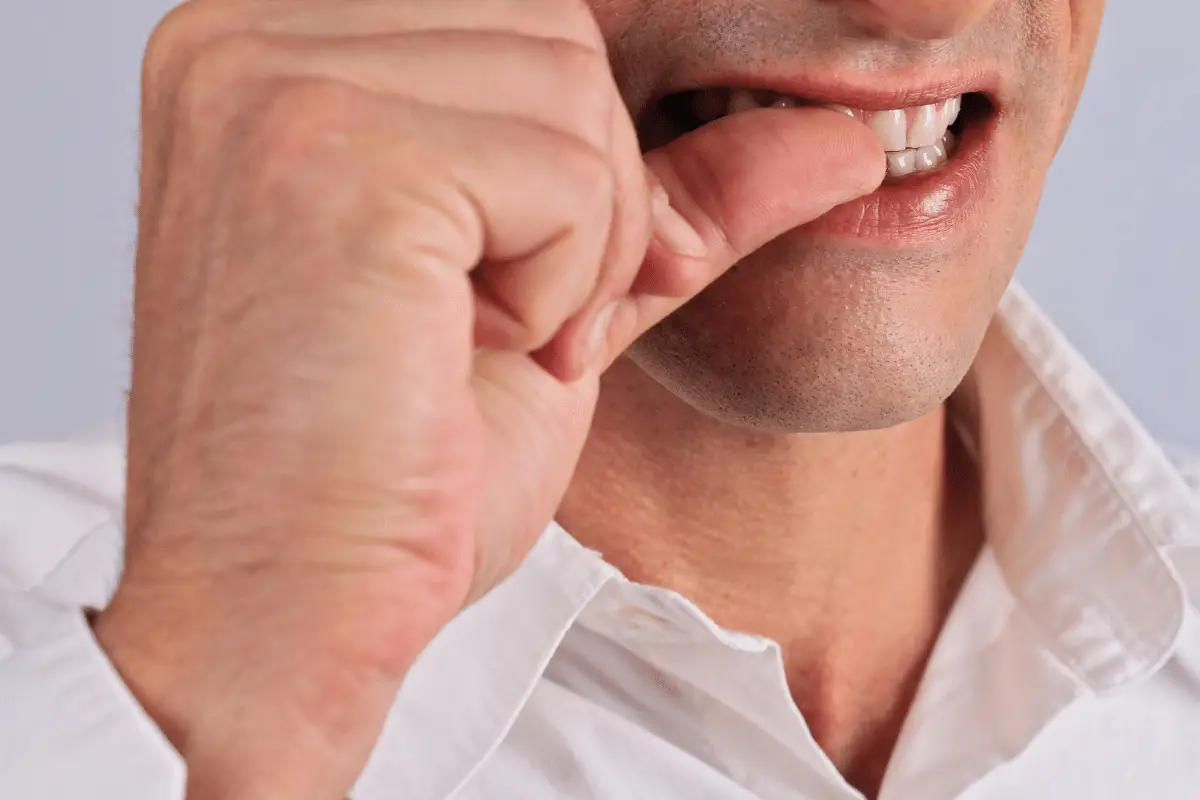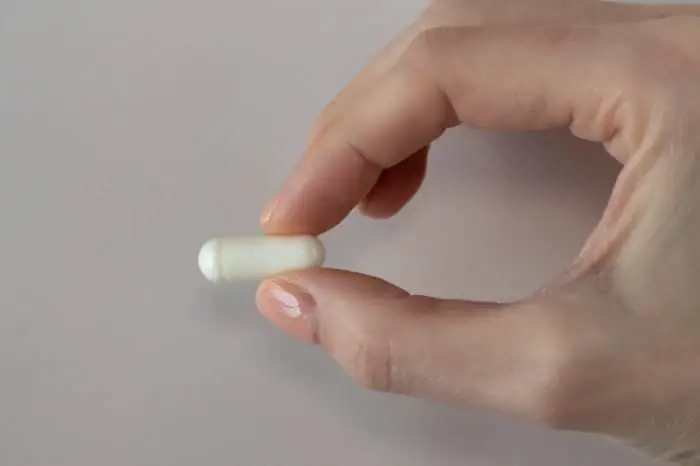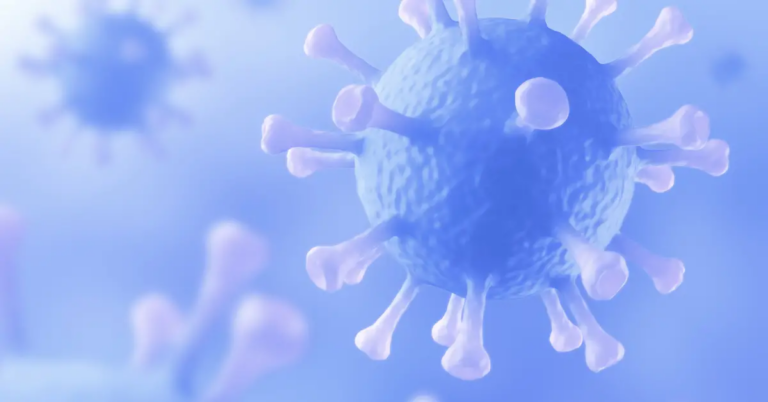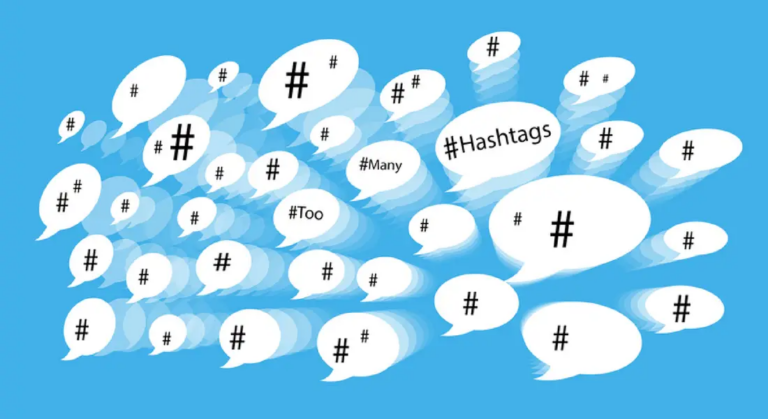Did you know that approximately half of all children and teenagers bite their nails? Nail biting is often considered an unattractive habit, but what if there’s more to it? Recent research suggests that nail biting could be a revealing sign of perfectionism. This article delves into the fascinating connection between nail biting and perfectionism, shedding light on the causes, effects, and potential health risks associated with this behavior. Backed by scientific studies, we explore the correlation between nail biting and perfectionism, providing valuable insights and effective strategies to help individuals overcome this habit and embrace a healthier lifestyle.
While most people associate nail biting with stress, anxiety, and nervousness, a study published in the Journal of Behavior Therapy and Experimental Psychiatry proposes that nail biting might be linked to perfectionism. Perfectionists often view life as an ongoing assessment of achievements and appearances, striving for success while fearing failure. This mindset is frequently accompanied by conditions such as depression and eating disorders. Interestingly, perfectionism can be inherited from parents, with even a raised eyebrow over a B on a test instead of an A potentially fueling perfectionistic tendencies.
The Link Between Nail Biting and Perfectionism:
Nail biting falls under the category of body-focused repetitive behaviors (BFRBs), alongside hair pulling and skin picking. To understand the tendency to engage in BFRBs, researchers compared two models: emotional regulation (ER) and frustrated action (FA). The ER model suggests that BFRBs are triggered by negative emotions, serving to alleviate unpleasant effects. On the other hand, the FA model posits that BFRBs are triggered by and alleviate impatience, boredom, frustration, and dissatisfaction.
Researchers hypothesized that individuals with BFRBs, such as nail biting, are more likely to align with the FA model due to their maladaptive planning styles characterized by high standards and an unwillingness to relax, which are inherent traits in perfectionists. Kieron O’Connor, the lead author of the study, states, “We believe that individuals with these repetitive behaviors may be perfectionists, meaning that they are unable to relax and perform tasks at a normal pace. They are therefore prone to frustration, impatience, and dissatisfaction when they do not reach their goals.”

Understanding the Effects of Nail Biting:
The study reveals that nail biting is strongly correlated with frustration rather than anxiety. Nail biters often exhibit perfectionistic traits such as impatience, boredom, and dissatisfaction. However, while nail biting might provide insight into perfectionist tendencies, it is essential to address whether it is a healthy habit or not.
Nail biting can have several negative consequences, including:
Nail Deformities: Continuous nail biting can damage the tissue surrounding the nails, leading to abnormal nail growth patterns. Dental Problems: Biting nails can result in chips, breaks, and cracks in teeth. Prolonged nail biting may also cause jaw pain. Increased Risk of Illness: Nails harbor potentially harmful bacteria, and putting them in the mouth can raise the chances of getting sick. Additionally, the skin damage caused by nail biting can provide a pathway for bacteria to enter the body.
Strategies to Stop Nail Biting:
If you’re seeking ways to break the habit of nail biting, here are some effective strategies to consider:
Cut them short: Keeping nails short makes it more challenging to bite them. Coat them with a bad taste: Applying a bitter-tasting nail polish or a specially designed nail-biting deterrent can help deter the habit. Wear gloves: Wearing gloves or finger covers can serve as a physical barrier, making it difficult to bite nails. Find your triggers: Identify the underlying reasons for nail biting by paying attention to the situations or emotions that trigger the habit. Once you understand the cause, you can find healthier ways to cope. Keep your hands or mouth busy: Engage in activities that occupy your hands or mouth, such as squeezing a stress ball, chewing gum, or finding alternative fidget toys.

My Personal RX: Preventative Measures to Overcome Nail Biting:
- Practice stress reduction techniques, such as deep breathing exercises, meditation, or yoga, to manage emotions that may trigger nail biting. Download my free Calm the Chaos Mediation Guide.
- Seek support from friends, family, or a therapist to address perfectionistic tendencies and develop healthier coping mechanisms.
- Consider cognitive-behavioral therapy (CBT) or other therapeutic approaches to target underlying issues related to nail biting and perfectionism.
- Maintain good oral hygiene to discourage nail biting by keeping your teeth and gums healthy.
- Find alternative ways to manage anxiety and stress, such as engaging in physical exercise, pursuing hobbies, or practicing relaxation techniques.
- Try my Adrenal Support Supplement designed to promote healthy adrenal gland function and help the body better cope with stress.
While nail biting may reveal perfectionistic tendencies, it is crucial to recognize the potential health risks associated with this habit. Understanding the connection between nail biting and perfectionism allows individuals to address their underlying emotions and adopt healthier coping mechanisms. By implementing effective strategies to stop nail biting and managing perfectionistic traits, individuals can strive for a healthier and more balanced lifestyle. Breaking the habit may require determination and persistence, but with the right techniques and support, it is possible to overcome nail biting and embrace healthier alternatives.

References:
[1] WebMD. (n.d.). Stop Nail Biting: Tips to Quit Biting Your Nails. Retrieved from https://www.webmd.com/a-to-z-guides/stop-nail-biting-tips#1
[2] Psychology Today. (n.d.). Perfectionism. Retrieved from https://www.psychologytoday.com/basics/perfectionism
[3] Samuels, D., et al. (2014). Nail Biting and Perfectionism: A Test of Competing Psychological Models. Journal of Behavior Therapy and Experimental Psychiatry, 45(1), 139-144. doi:10.1016/j.jbtep.2013.09.009
Image Source: https://cdn.powerofpositivity.com/wp-content/uploads/2017/06/bite-nails-1600×900.jpg



















